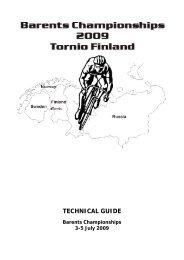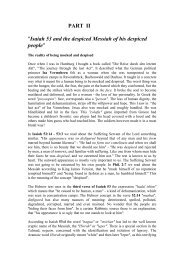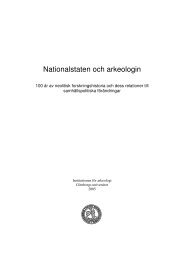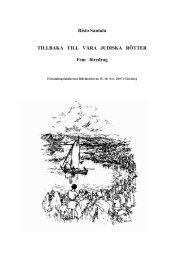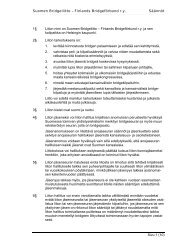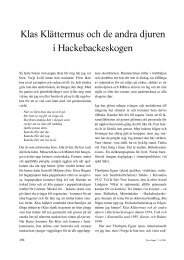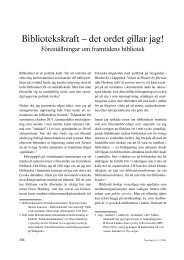Struggles for Sustainable Urban Development in Cochabamba, Bolivia
Struggles for Sustainable Urban Development in Cochabamba, Bolivia
Struggles for Sustainable Urban Development in Cochabamba, Bolivia
You also want an ePaper? Increase the reach of your titles
YUMPU automatically turns print PDFs into web optimized ePapers that Google loves.
of the water war is viewed as a triumph <strong>for</strong> the people of <strong>Bolivia</strong>, a society where decisions<br />
are made through ‘acclamation’ is far from ideal. This is not to dismiss the ideas beh<strong>in</strong>d<br />
<strong>Bolivia</strong>n popular movements, but<br />
To praise all community protests as heroic and progressive is as problematic as<br />
to blame them <strong>for</strong> be<strong>in</strong>g <strong>in</strong>sular and self-serv<strong>in</strong>g (Hsiao & Liu 2004).<br />
Escobar and Vásquez (2002) argue that because of the high amount of demonstrations,<br />
people make irrational demands, which result <strong>in</strong> short-term and short-sighted decisions by<br />
the government. <strong>Bolivia</strong> urgently needs to build alternative - legitimate and democratic -<br />
means <strong>for</strong> the whole population to participate <strong>in</strong> decision-mak<strong>in</strong>g to avoid further<br />
deterioration <strong>in</strong> the rule of law.<br />
Institutions <strong>for</strong> susta<strong>in</strong>able development<br />
As the above experiences from water and transport management show, the features of<br />
government <strong>in</strong>stitutions are a significant factor <strong>in</strong> policy processes. Institutions, regulations<br />
and <strong>in</strong>struments <strong>for</strong> susta<strong>in</strong>able development have serious problems of relative <strong>in</strong>stitutional<br />
weakness <strong>in</strong> Lat<strong>in</strong> America (Ocampo 1999). There:<br />
the failure of democratic <strong>in</strong>stitutions to function properly weakens their<br />
legitimacy <strong>in</strong> the eyes of their citizens (Karl 2000).<br />
In <strong>Bolivia</strong> the weak government agencies are struggl<strong>in</strong>g to ga<strong>in</strong> legitimacy. Accord<strong>in</strong>g to<br />
Connelly & Smith (2003) <strong>in</strong>ternational agreements and programmes provide a legitimate<br />
basis <strong>for</strong> local susta<strong>in</strong>ability policies. However such agreements have ma<strong>in</strong>ly focused on<br />
environmental threats perceived by the <strong>in</strong>dustrialised countries and the <strong>in</strong>ternational<br />
community (such as de<strong>for</strong>estation and climate change) and not local environmental<br />
problems. There<strong>for</strong>e the municipal government of <strong>Cochabamba</strong> has been left without this<br />
32



